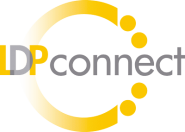Communication Skills Every Young Professional Needs
Communication Skills Every Young Professional Needs
By Allie Cooper
It’s no secret that good communication is vital to success in the professional world. However, what some people may not realize is just how much poor communication can cost businesses. As reported by Inc., David Grossman calculates that some companies have lost up to $62 million a year, with each employee losing about $26,000 in productivity as a result. And with work-from-home arrangements becoming the norm, it has become especially challenging to communicate clearly and effectively, presenting obstacles in career growth.
Being able to communicate well is a must for every young professional who wishes to have a successful career in business. It helps you establish yourself as a vital member of the team, develop strong professional relationships, and avoid misunderstandings. Here are some of the specific skills young professionals can develop to do just that.
Active listening
Researchers often refer to active listening as the highest and most effective level of listening. It involves listening for the content, intent, and emotions of the person speaking. Active listening also requires a high level of attention and interest to read both verbal and non-verbal cues.
Active listening is a skill that young professionals can learn as early as their first internship. Our previous blog post by Hae-Song Jung notes how interns face challenges of learning about the company, doing the work assigned to them, and performing well. Clear and frequent communication is critical to meeting these challenges. Managers and interns can achieve success by developing a clear two-way feedback system – a process that requires active listening. Active communication ensures that goals are aligned with expected project deliverables.
Conflict managementg
Since conflict is a natural part of any job, regardless of industry or job level in the organization,conflict resolution skills are essential. A mismanaged conflict can be detrimental to a business; but a well-handled one can save time, money, and relationships.
To manage a conflict with proper communication skills, young professionals must start by addressing issues openly and immediately. This isn’t always natural for them.. Some training in tactful direct communication can help young professional and their colleagues involved in the conflict to agree on steps moving forward. When discussing the details of the conflict, active listening, neutral terms, and open body language will help all recognize personal differences and take these into account.
Digital communication
As the work environment became more remote, dependence on the digital environment grew with it. And with face-to-face interactions severely limited by the pandemic, digital communication skills have become necessary. Such skills are essential for navigating the professional world, especially for those building and managing teams.
Good communication training has continuously evolved at universities. Maryville University’s online bachelor’s degree in business administration lists the important traits of a leader as: “forthrightness and integrity, relationship skills, empathy, and a desire to serve both others and the organization.” Unfortunately, these traits are challenging to exhibit remotely. Young professionals who want to advance to become operations, human resources, or healthcare managers will need to master the digital communication skills needed in a digital age where face-to-face communication is likely to be less frequent.
Public speaking
No matter how skilled the young professional, it can be very difficult to succeed without decent public speaking skills. In fact, Warren Buffett considers this to be the most important skill you can develop, adding that both written and verbal communication skills up your value by at least 50%. What was once called a soft skill is now considered a fundamental ability in any stage of your career.
However, public speaking can often be a struggle even for the most seasoned professionals. Building this skill should be a continuous process. Help your young professionals clarify their message and speak using an outline.
Communication skills are the grease of business, helping young professionals market themselves, resolve conflicts and navigate change. An investment in communication training positively impacts all other elements of their development.



